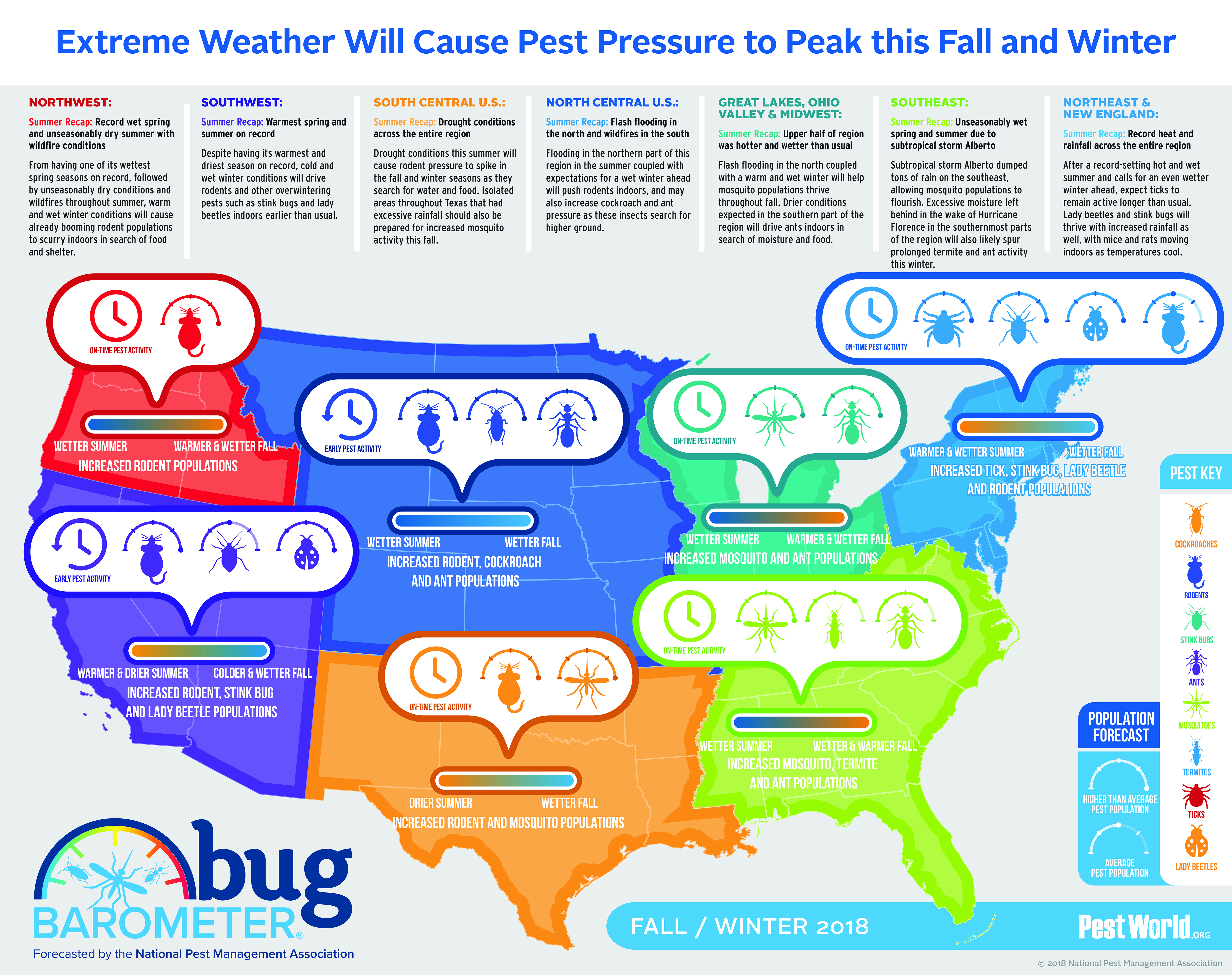Prepare Yourself To Transform Your Garden Right Into A Pest-Free Place Making Use Of These Innovative Suggestions And Methods
Prepare Yourself To Transform Your Garden Right Into A Pest-Free Place Making Use Of These Innovative Suggestions And Methods
Blog Article
Post By-Frandsen Pittman
Visualize your garden as a shelter, a location of harmony and appeal. However, the presence of outdoor bugs can rapidly interrupt this idyllic image. What happens if there were basic yet reliable methods to keep these undesirable site visitors away and safeguard your garden sanctuary? By following a few useful tips and executing natural approaches, you can develop a harmonious outdoor space where your plants can flourish undisturbed.
Natural Parasite Deterrents
To maintain pests far from your yard naturally, plant aromatic herbs like mint and lavender. These great smelling plants not only add charm to your yard yet also act as effective bug deterrents. Parasites like insects, flies, and even some garden-damaging insects are pushed back by the strong aromas produced by these natural herbs. Just positioning them strategically around your garden can aid produce an all-natural obstacle against unwanted insects.
Along with mint and lavender, consider planting other natural herbs like rosemary, basil, and lemongrass to better improve your yard's pest-proofing abilities. These natural herbs not only work as natural repellents but also have actually the added advantage of working in food preparation or crafting home made treatments.
Strategic Plant Positioning
Consider the design of your yard and the kinds of plants you need to purposefully put them for maximum pest-proofing effectiveness.
Start by grouping plants with similar resistance to parasites with each other. By doing this, you can produce a natural barrier that deters insects from spreading out throughout your yard.
In addition, positioning pest-repelling plants like marigolds, lavender, or mint near more vulnerable plants can help secure them. High plants, such as sunflowers or corn, can function as a guard for shorter plants versus parasites like rabbits or ground-dwelling insects.
Bear in mind to leave sufficient room in between plants to enhance air circulation and lower the danger of diseases that pests may bring.
Furthermore, take into consideration planting strong-smelling herbs like rosemary or basil near susceptible plants to perplex parasites' detects and make it harder for them to find their targets.
Efficient Parasite Control Methods
For combating yard parasites efficiently, executing a multi-faceted bug control strategy is necessary. Begin by urging https://www.psu.edu/news/impact/story/educators-offer-tips-how-manage-spotted-lanternflies-ornamental-trees/ like birds, ladybugs, and hoping mantises to help keep pest populaces in check. Introducing plants that attract these helpful pests can help in pest control. In addition, exercising great yard health by eliminating particles and weeds where insects could conceal can make your yard less friendly to undesirable visitors.
Consider using physical obstacles such as row cover textiles or netting to secure at risk plants from parasites like caterpillars and birds. Applying natural pesticides like neem oil or insecticidal soap can also work against specific pests while being much less dangerous to helpful insects and the atmosphere. https://who-can-i-call-to-get-rid18395.sharebyblog.com/26514353/lasting-solutions-for-insect-monitoring-harnessing-nature-s-power-to-prevent-rodents to turn your crops each period to stop the buildup of pest populaces that target particular plants.
Regularly check your plants for indications of insect damages so you can take action quickly. By combining these techniques and staying cautious, you can successfully regulate garden pests and take pleasure in a growing, pest-free garden.
Conclusion
So, there you have it - with the ideal methods, you can keep pesky outdoor parasites away from your garden and assist your plants flourish.
Did you recognize that growing mint has been shown to ward off mosquitoes and various other pests, decreasing the need for hazardous chemicals by as much as 60%?
By incorporating all-natural deterrents and clever growing strategies, you can develop a beautiful and pest-resistant yard sanctuary for you to enjoy.
